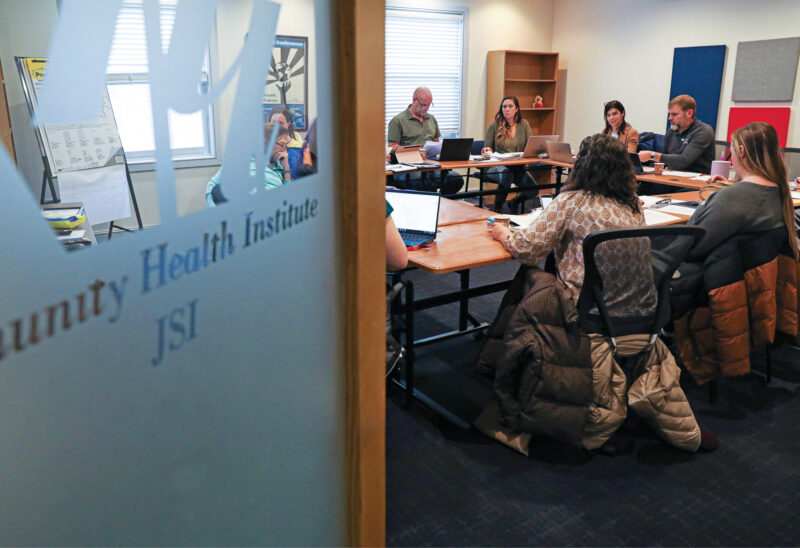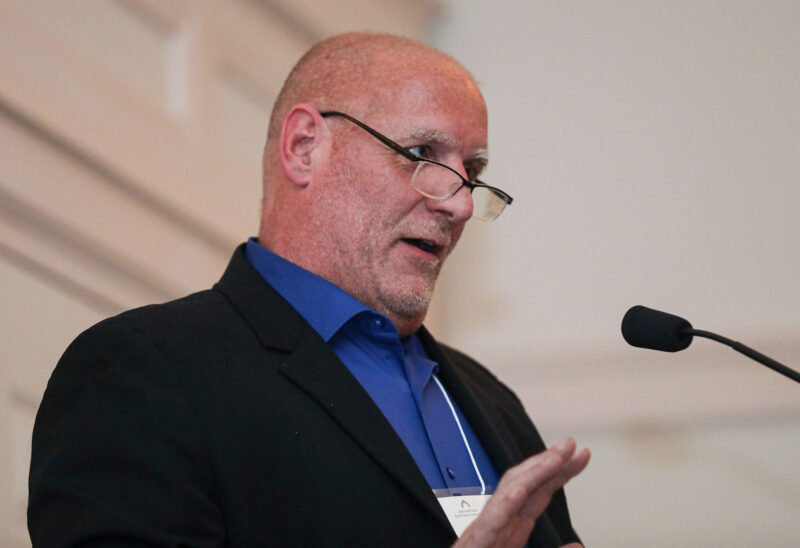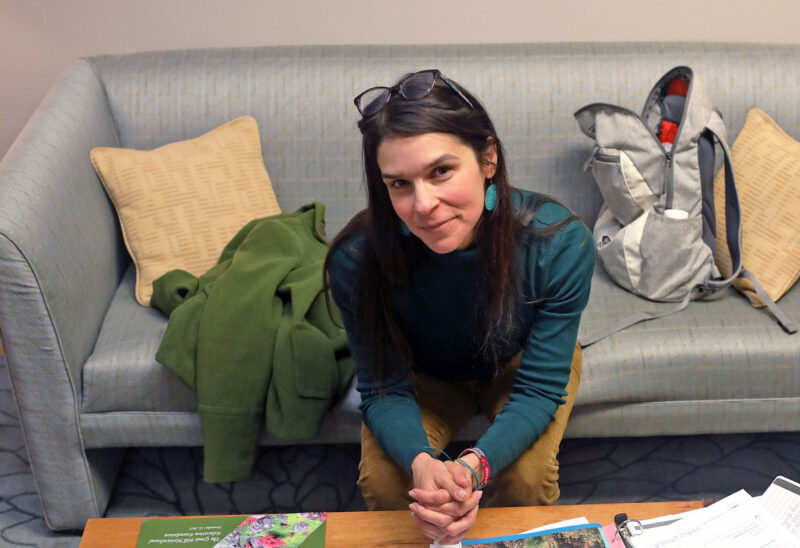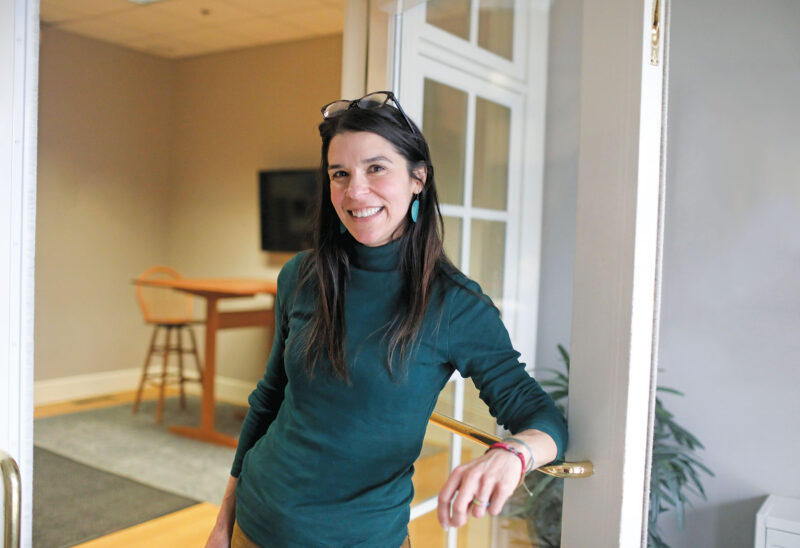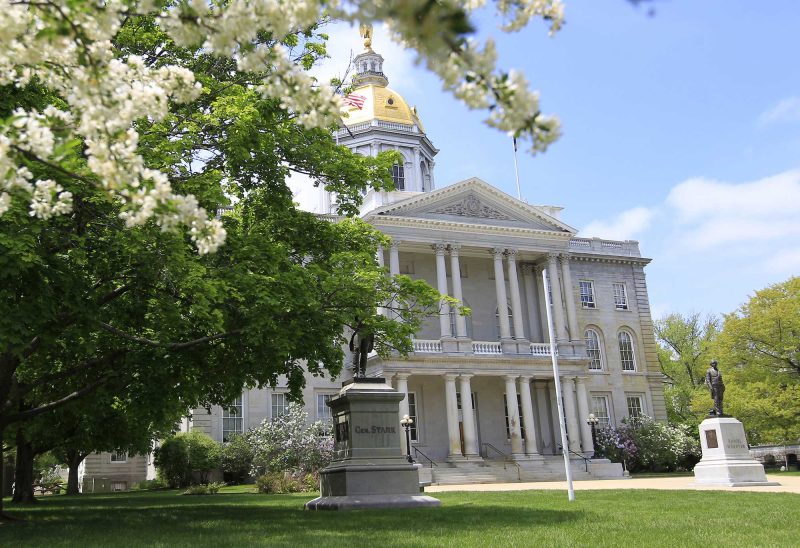The state’s substance use crisis has rocketed to the top of New Hampshire’s list of public concerns. In 2015, 439 people died from drug overdoses — a mortality rate that has more than doubled since 2013. New Hampshire ranks third in the nation in drug deaths per capita. New Hampshire spends less in public dollars per capita than almost any other state in the U.S. to address this issue. And substance misuse costs New Hampshire $2 billion annually in lost productivity and other costs.
This longstanding public health crisis is very much in the spotlight.
The public, private and nonprofit sectors are all working to address it. Many efforts have been ongoing for years.
So what role can private philanthropic organizations — like the New Hampshire Charitable Foundation — play in addressing this crisis?
Philanthropy has long played a pivotal role in remedying crises of public health: Think the March of Dimes leading the charge to eradicate polio in the 1950s, and the Bill and Melinda Gates Foundation working to combat malaria.
Oliver Hubbard of Walpole left New Hampshire an astonishing gift in the 1990s: $43 million to the Foundation to address substance misuse in New Hampshire.
Hubbard’s generosity made the Foundation the largest private funder in the state addressing the disease of addiction. By the time the epidemic started getting headlines, the Foundation was already deeply involved in working toward solutions. Since 1996, more than $42 million has been granted for prevention, treatment and recovery. And, since Hubbard’s gift has been invested for the long-term, grants will continue to be made in perpetuity.
“As long as there are people suffering from substance use disorders who need help, we’ll be there,” said Tym Rourke, who leads the Foundation’s work in this area.
The Foundation is unique among the 780 community foundations in the United States in its focus and breadth of work on this issue.
But what is the role of philanthropy beyond, well, cutting checks?
Rourke does not miss a beat: “Catalytic change agent.”
Philanthropy can:
Take risks.
“One of the most important things that philanthropy can do is take risks, to really think outside the box, developing strategies and solutions to advance change on the community level,” said Alexa Eggleston of the Conrad N. Hilton Foundation, a major national funder in substance use prevention.
The Foundation has backed many new and effective solutions: From partnering with the Hilton Foundation to introduce a new youth drug and alcohol screening protocol into medical settings to providing key support as innovative prevention programs are launched to supporting advocacy organizations working to expand insurance coverage for addiction.
Think long term.
“Because of the long view that philanthropy has, we can think beyond the next budget cycle or the next election,” said Eggleston.
The Foundation’s multi-million dollar commitment to this issue spans decades. That long view, said Rourke, “allows us to work in the complexity of this issue to the fullest extent.”
Build systems that create change.
New Futures, the state’s leading advocacy and education organization in the area of substance misuse, was launched by the Foundation in 1997. The nonpartisan, nonprofit organization was instrumental in the creation of the state’s Alcohol Fund, which dedicates resources for treatment, prevention and recovery; in legislation related to underage drinking; and in expansion of health insurance coverage for addiction treatment.
New Futures, said state Senator Jeanie Forrester, has been “critical in providing information and education” to lawmakers and the public.
And New Futures helps those working on the front lines.
“They’re our eyes and ears in the Legislature,” said Sharon Drake, who runs Serenity Place, a Manchester treatment and recovery center. “So I’m not running to Concord every day. I don’t have time. We have human lives here to pay attention to.”
The Foundation partnered with the state’s Bureau of Drug and Alcohol Services to establish the Center for Excellence in Substance Use Services, a resource in best practices, and provides critical support to the state’s regional public health networks and addiction treatment providers.
Attract additional funding.
Foundation funding to address this disease has brought in an additional $56 million since 2009 to New Hampshire in federal grants and private foundation grants.
Philanthropy Works
The Foundation is fighting the disease of addiction by working with a comprehensive network of partners to implement proven prevention strategies, expand access to treatment and support recovery.
5%
Decrease in misuse of prescription drugs among youth since 2011 as noted in the latest Youth Risk Behavior Survey, administered every two years by the Centers for Disease Control and Prevention to New Hampshire high school students.
4,000
Youth screened to date for substance use at 25 health care facilities in New Hampshire; 10,000 projected to be screened by mid-2017. The Foundation is implementing the new youth screening protocol across the state with the help of a $2.5 million grant from the Conrad N. Hilton Foundation.
48,000
New Hampshire residents who gained access to health insurance that covers treatment for addiction. The Foundation made key grants to advocacy organizations working to expand insurance coverage under the Affordable Care Act.
Be nimble.
“Philanthropy can be flexible and morph its role to maximize its impact almost on a dime in a way that the public sector can’t,” Rourke said.
When the state’s Medicaid program was expanded, it included coverage for addiction treatment. That was a good thing — with an unintended consequence: Treatment centers had to immediately comply with billing and licensing requirements mandated by the Affordable Care Act. Systems had to be created, billing staff trained, facilities modified. Four centers, with about 100 beds combined, were in danger of closing.
“If it wasn’t for the Charitable Foundation, we probably would have closed our doors,” said Drake. The Foundation provided bridge funding during those transitions. All four centers remain open.
“There are so many ripple effects that support us that the Charitable Foundation took the lead on where no other organization would do it,” Drake said.
Work effectively in public-private partnerships.
Gov. Maggie Hassan calls New Hampshire “an all-hands-on-deck state.”
“One of the things that is really distinctive about New Hampshire is that we have a number of really innovative public-private partnerships — including partnerships between the charitable community and state government,” Hassan said.
Rourke chairs the Governor’s Commission on Alcohol and Drug Abuse Prevention, Treatment and Recovery — which is leading the comprehensive statewide plan to tackle the disease of addiction. Sen. Forrester serves on that commission.
“Having Tym in that position has really made a difference in terms of elevating the issue,” Forrester said. “From the first day I stepped onto that commission, watching how engaged everyone was on this issue, how everyone was working toward a common goal, was very impressive.”
The position of Advisor on Addiction and Behavioral Health in the governor’s office, tasked with coordinating the state’s efforts to combat substance misuse, was launched with Foundation funding.
“One of the things I have truly appreciated about the Charitable Foundation is that it has understood that in New Hampshire the philanthropic community and state government can complement each other,” Hassan said. “We all can have the kind of interaction and conversations that enable us to identify a common purpose and set common goals and work toward them.”
Connect and convene.
“The Charitable Foundation has been an active partner in doing the networking and linking of institutions around substance use,” said Greg Norman, Director of Community Health Improvements at Dartmouth-Hitchcock. “They have not only used their dollars, but used their bully pulpit and linking capacity to make substance use far more a part of the community dialogue.”
Speak up.
“A private funder can use their philanthropic voice, not just their philanthropic dollars,” said Rourke, “to say things that need to be said.”
Dean LeMire is substance misuse prevention coordinator for Strafford County’s public health network. He is also in long-term recovery from addiction.
He calls Rourke “the most fierce advocate that I know of.”
Rourke is a frequent presence at the State House, a sought-after speaker and a go-to expert for news outlets covering the issue.
“He’s a fighter for us,” said Drake.
If you as an individual or a corporation, if you can jump in now and help, this is the time.- Alex Ray, owner of the Common Man Family of RestaurantsTweet This
Perhaps most importantly: care.
All of this work has happened because Oliver Hubbard cared.
“His vision spoke to an understanding of this illness that only now in this country are we talking about,” Rourke said.
Rourke never met Oliver Hubbard. But he wishes he could show Hubbard the results of his generosity and say: “See what you built?”
Alex Ray, who owns the Common Man restaurants, has also committed resources to address this crisis. Ray’s $100,000 challenge grant to open a new treatment facility in Franklin was matched with $10,000 from the Hubbard Fund and an additional $18,500 from Foundation donor-advised fund holders. The challenge drew an inspired response — exceeding its goal and raising more than $280,000 overall. Letters and calls poured in from people who wanted to share their stories and honor loved ones who had suffered from the disease of addiction.
Ray wants to see more resources devoted to this. Given the scope of the crisis, even a gift like Hubbard’s can only go so far.
“If you, as an individual or a corporation, if you can jump in now and help,” Ray said, “this is the time.”
Learn more about the Foundation’s work in substance use disorders prevention and treatment.

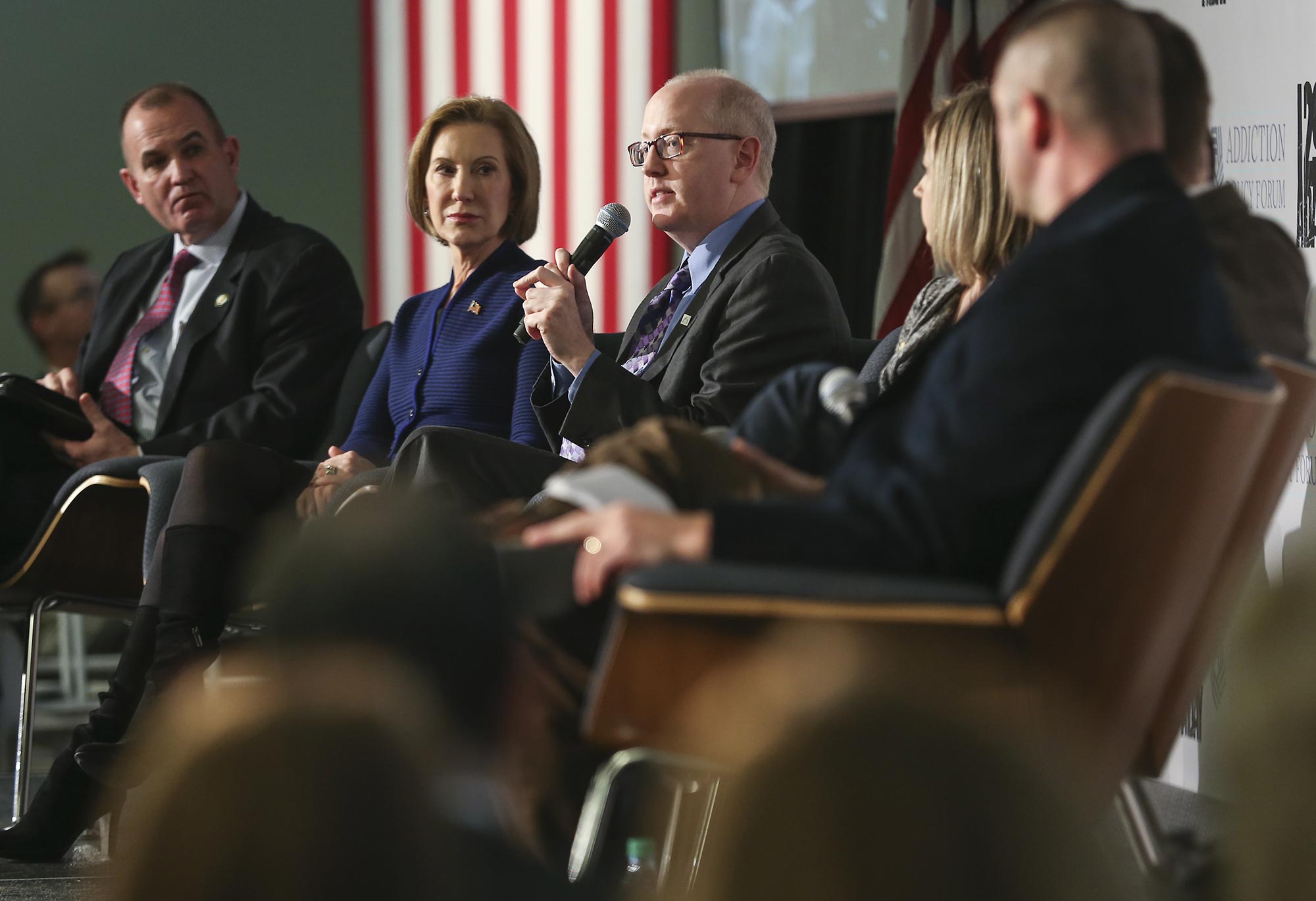









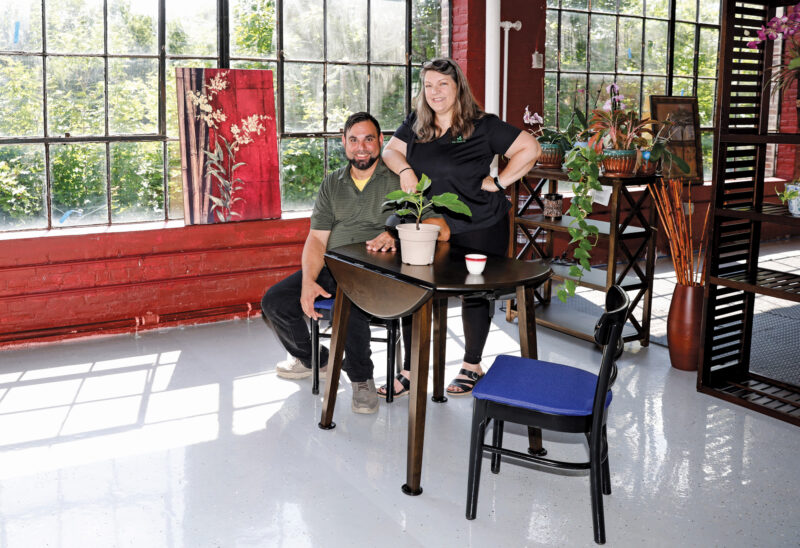
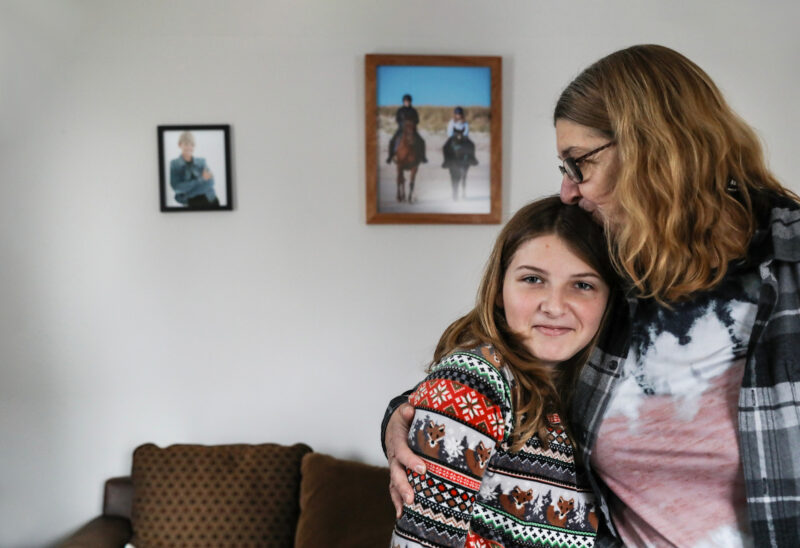

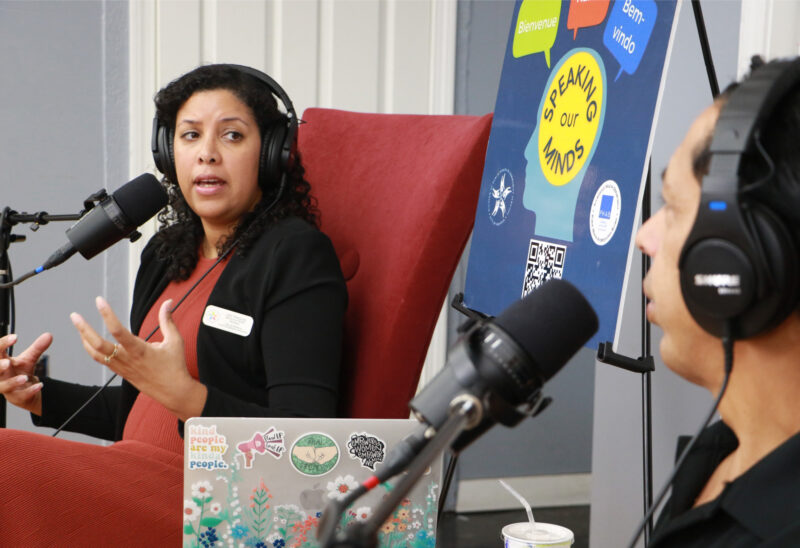
![Charitable Foundation President Dick Ober [Photo by Cheryl Senter]](https://www.nhcf.org/wp-content/uploads/2023/12/dick-ober-purpose-fall-winter-2023-800x548.jpg)
